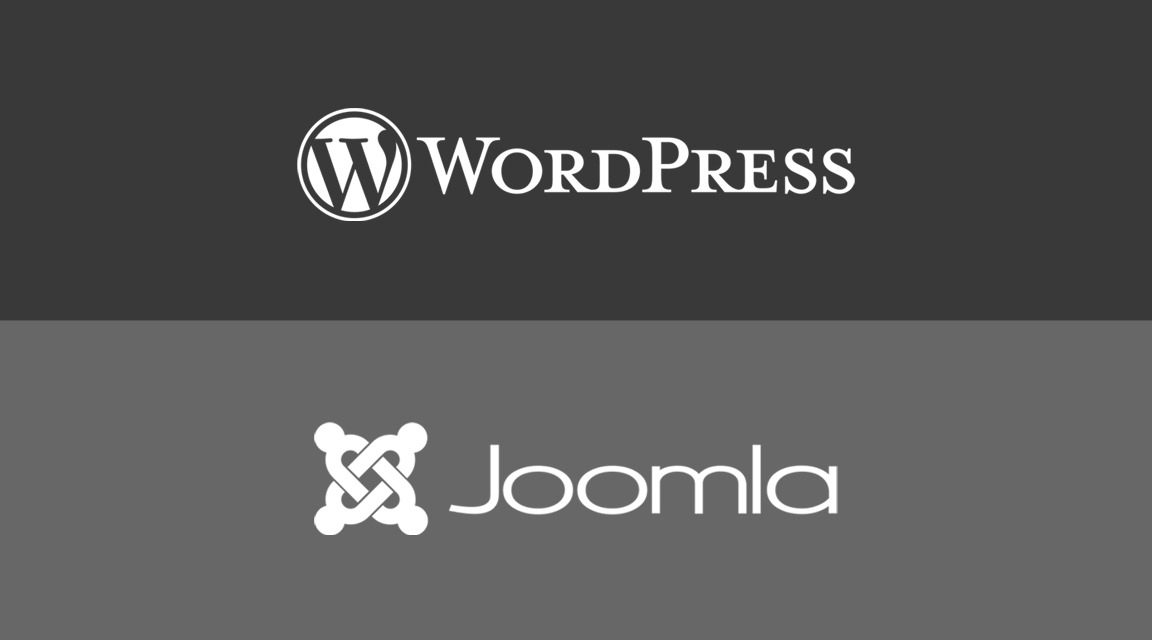Comparison WORDPRESS & JOOMLA

What to choose WordPress or Joomla?
The first question you need to answer is why do you need a website. If you need an online store, then it is better to use CMS systems that are designed specifically for online stores, for example, OpenCart, PrestaShop and others.
If you need a corporate website, an internet directory, a services website, a blog, then many users usually have a choice of two popular CMS systems: WordPress and Joomla.
Hence, we will try to explain to you and specify the most important differences between the two popular content management systems.
Each CMS has strengths and weaknesses. Joomla and WordPress are excellent systems in their segment and need to be properly operated.
You will see the scores for each CMS by blocks and the total score at the end.
CMS systems will be rated on a 2-point scale, where 2 is a high score.
Website improvements and change:
WordPress: the freelance market is less expensive, most likely due to wider distribution of this system and higher competition. (2)
Joomla: more expensive market. If you want to find a freelancer, who will have to make any additions, you will have to pay more. (1)
Template market
WordPress: There is a large number of free quality templates that can be used as a base. Templates that are sold are usually expensive, however, if you really wish, you can find them for free on all kinds of warez sites. (1)
Joomla: There are a lot of cool paid templates that are sold on different websites. Free templates look a bit outdated. On websites that sell templates, prices for Joomla templates are usually lower than on WordPress, but not much. (2)
Template management
WordPress: Strength. When a template is made using administrative options, it is very easy to manage. (2)
Joomla: Weakness. If there are many templates, you need to make changes to the code through the admin panel. (1)
Content management system
WordPress: In order to use this system as CMS, you do not need PHP knowledge. If you are an end user, understanding all the options and making it the same as on the demo server is not such a difficult task. (2)
Joomla: Just a few mouse clicks and you can manage a complex website. If you buy a template, usually with an archived file together with SQL code for uploading to the database, then after some simple manipulations you will get the same you saw on the demo server. (1)
Website features
WordPress: Strength. Many features that are easy to manage from the modules section on the admin panel. (2)
Joomla: Weakness. There are not so many simple Joomla features. (1)
Hosting
WordPress: Usually there is no problems due to great flexibility of the script. (2)
Joomla: There may be problems on some hosting, even if it says that it is ready for Joomla. (1)
Size (FTP)
WordPress: Small. (2)
Joomla: Сan be huge. (1)
Folder structure
WordPress: Strength. Just a few folders for the entire engine. (2)
Joomla: Weakness. The structure is huge and complex. Both the admin part and the user part are overloaded with folders and files for plugins, components, editors, templates and settings. (1)
Content
WordPress: You have enough options. You can additionally find templates that offer many possibilities for organizing content. (2)
Joomla: A large number of options are available in relation to articles and content organization, but for beginners they may seem complicated at first. Each menu item can have content arranged differently, with or without columns, with or without introductory articles. The user can choose which articles to display on the home page or in a special module. (2)
Menu
WordPress: Can contain many menus in different places with different options. (2)
Joomla: Can contain many menus in different places with different options. (2)
Download speed
WordPress: Very fast engine. Even with more than 10 active plugins. Certainly, the more plug-ins, the lower download speed, but in any case, faster than competitors. (2)
The proposed systems have third-party plug-ins to manage caching, which can significantly speed up loading. Joomla has no perfect options. WordPress has some pretty good options. (2)
Updates
WordPress: Very easy. All can be controlled directly from admin panel. The downside to frequent updates is the emergence of new bugs. Sometimes you cannot follow all the updates and the website may not have the latest version. (2)
Joomla: Weakness. Updating the engine itself does not cause problems, however, after updating, there may be problems with previously installed plug-ins. To fix everything in such a case is not a very simple task. (1)
SEO
WordPress: Strength. WordPress is born for SEO. (2)
Joomla: Weakness. The user has the ability to edit meta-tags, descriptions and titles. But it is pale when compared to WordPress. If you use different ecommerce apps, you need to install SEO components that are not so easy to use. (1)
Maintenance
WordPress: There is a built-in option. It will perform a similar function after some manipulations. You can also install special templates that will inform users about maintenance and approximate opening date. (2)
Joomla: There is a built-in option for website closure and maintenance. In this case, visitors will see a message about the maintenance. (1)
So let’s summarize:
WordPress – 27
Joomla – 18
As you can see, WordPress has won.
Subscribe and keep up to date!
To subscribe to the newsletter of our cool articles from the infocenter section!

Your request is accepted.
We got your cool feedback.